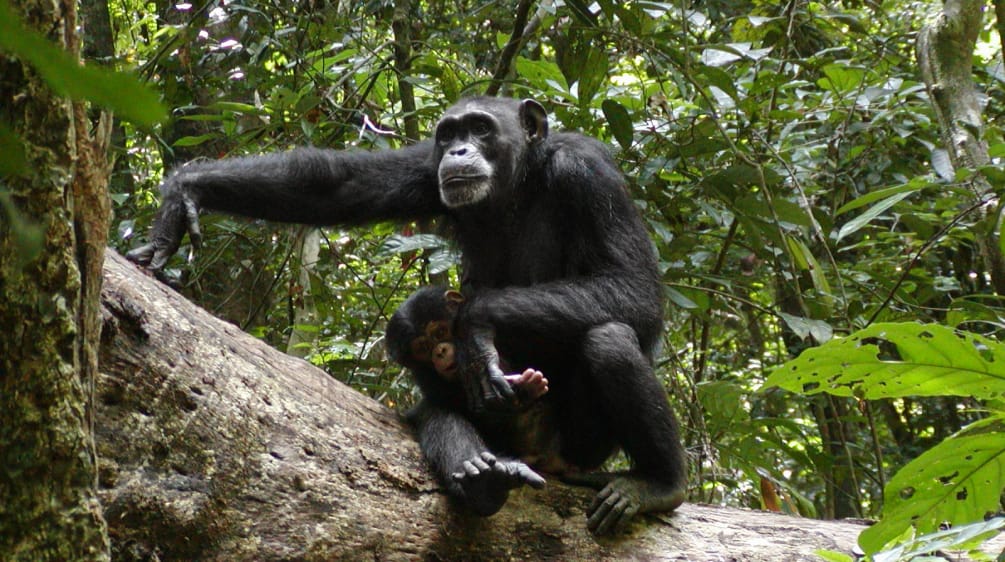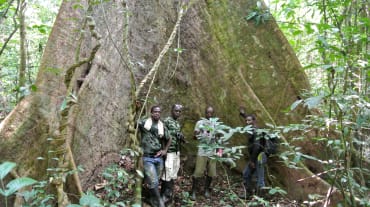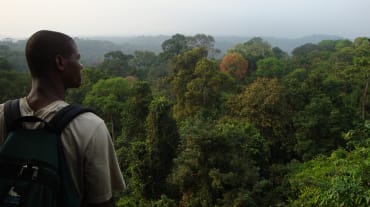Côte d’Ivoire: A safe forest corridor for chimpanzees
 Humans are destroying chimpanzee habitat at an alarming rate (© Sonja Metzger/ WCF)
Humans are destroying chimpanzee habitat at an alarming rate (© Sonja Metzger/ WCF)
Nov 7, 2023
Good news for West Africa’s chimpanzees: Cavally Forest in Côte d'Ivoire has been declared a nature reserve. This will afford better protection to the link between the Taï and Sapo national parks and thus the primates’ habitat.
The 67,500-hectare Cavally Forest is part of the largest remaining rainforest area in West Africa, linking the Taï National Park in Côte d'Ivoire with the Sapo National Park in neighboring Liberia. Several thousand critically endangered West African chimpanzees (Pan troglodytes ssp. Veru) live in this contiguous stretch of forest.
Primatologists and environmentalists have therefore been calling for greater protection of Cavally Forest for years. The Wild Chimpanzee Foundation (WCF) calls the decision a “monumental move to conserve one of West Africa's last bastions of biodiversity” and a “beacon of hope for the Ivorian forests”.
On September 13, the government of Côte d'Ivoire declared Cavally Forest a nature reserve (Reserve naturelle). Previously, the area was merely a “classified forest” – one that had been extensively damaged by permitted commercial logging. The national park authority Office Ivoirien des Parcs et Réserves (OIPR) is now responsible for the reserve and logging is completely prohibited there. The national park authority now wants to raise awareness in local communities about the status of the protected area and the associated laws.
Cavally Forest has already lost a third of its forest area, and 90 percent of Ivorian forests have disappeared in the last six decades. Commercial logging is a major factor here, as is illegal cocoa cultivation. According to the WCF, hunting persists at an “alarming level”.
The WCF has been a long-time partner of Rainforest Rescue in protecting West Africa’s chimpanzees.













